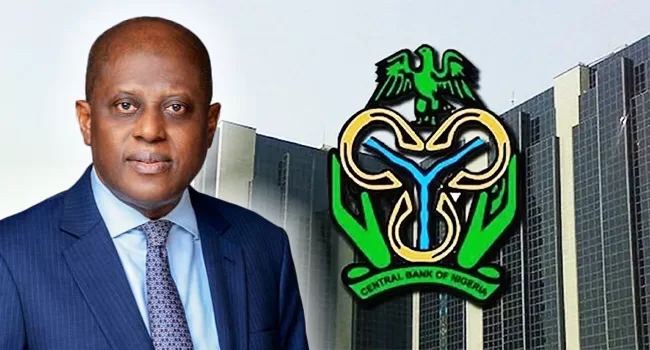
The Central Bank of Nigeria (CBN) has raised the Monetary Policy Rate (MPR) to 27.50% from 27.25% as part of ongoing efforts to address rising inflation in the country.
The decision was made during the Monetary Policy Committee (MPC) meeting held in Abuja on Tuesday, marking the final session of the year.
CBN Governor Yemi Cardoso, who announced the decision, noted that the MPC unanimously voted to increase the MPR by 25 basis points.
He also confirmed that the Cash Reserve Ratio (CRR) would remain unchanged at 50% for Deposit Money Banks and 16% for Merchant Banks.
“The Committee was unanimous in its agreement to raise the monetary policy rate by 25 basis points to 27.50 percent,” Cardoso stated during his remarks at the apex bank’s headquarters.
Rising Inflation Drives Policy Shift
The decision to raise the benchmark interest rate was influenced by renewed inflationary pressures, with Nigeria’s inflation rate climbing to 33.88% in October 2024, according to the National Bureau of Statistics (NBS).
This represents a significant increase from the 32.7% recorded in September, driven by higher transportation costs and rising food prices.
In its Consumer Price Index (CPI) report, the NBS highlighted a 1.18 percentage point month-on-month hike in inflation levels, underscoring the urgency for monetary interventions.
Governor Cardoso noted that the MPC’s deliberations focused on these inflationary pressures, which have persisted despite earlier monetary tightening measures.
“Members agreed unanimously to remain focused on addressing price developments,” he said.
Sixth Rate Hike in 2024
The latest increase marks the sixth time the CBN has raised the interest rate in 2024.
In September, the bank increased the MPR to 27.25% following a temporary decline in inflation during August.
Analysts suggest that the consistent hikes reflect the central bank’s resolve to stabilize the economy by curbing inflationary pressures.
The rising MPR is expected to tighten liquidity in the financial system, with the goal of reducing spending and dampening inflationary trends.
Economic Outlook
While the rate hike aims to tackle inflation, it is likely to have mixed effects on the broader economy.
Higher interest rates could increase borrowing costs for businesses and consumers, potentially slowing down economic activity.
However, the policy shift is also expected to help stabilize prices and foster long-term economic resilience.
As Nigerians brace for the implications of the new rate, the CBN has reaffirmed its commitment to stabilizing the economy through effective monetary policies.
The next MPC meeting is expected to assess the impact of this latest hike and outline strategies for the year ahead.










